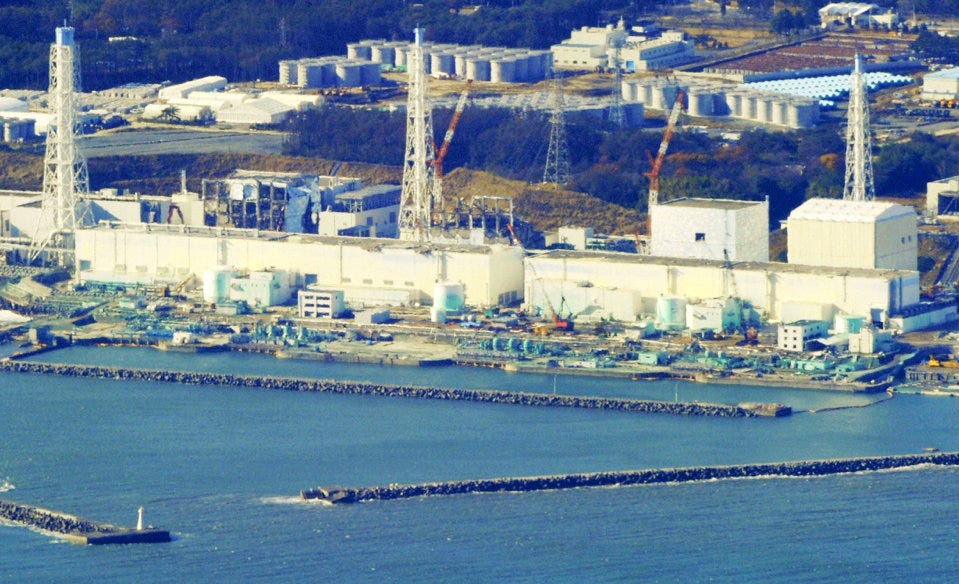Despite Worries Japan Working to Release Treated Radioactive Water off Fukushima
Preparations have started to discharge treated radioactive water into the sea from the March 11, 2011 earthquake and tsunami that damaged the Fukushima power plant, Japan’s Mainichi Daily reports.
Although local fishermen and Japan's neighbours remain suspicious of the plan, the Japanese government is said to be looking to begin releasing the water sometime this spring or summer, in conjunction with operator Tokyo Electric Power Company (TEPCO).
TEPCO and the government plan to release the water containing trace amounts of tritium into the Pacific Ocean.
In the hours following the natural disaster, the Fukushima Daiichi power plant lost power and the ability to cool its reactors leading to Nos. 1 to 3 reactors suffering core meltdowns, and the buildings of No. 1, 3 and 4 units becoming severely damaged by hydrogen explosions.
Since then, the Mainichi report says, water has been continuously pumped in to cool melted fuel and debris. As a result, the water becomes contaminated with radioactive materials like cesium and strontium and mixes with groundwater and rainwater before being moved into storage tanks after being treated with an advanced liquid processing system, or ALPS, that removes most radionuclides.
The introduction of the ALPS in 2013 allowed most contaminants to be removed from the water, but the process cannot eliminate Tritium, which is difficult to separate.
According to Japanese officials, Tritium is a relative of hydrogen and exists naturally in rainwater and seawater due to cosmic radiation and past nuclear tests.
It is said to pose little risk to human health and the environment as the radiation given off by it is very weak and cannot penetrate human skin. It is also believed to be unlikely that it can accumulate in a living body.
However, opinions vary, as although Tritium is said to be a relatively weak source of beta radiation, which itself is too weak to penetrate the skin, it can increase the risk of cancer if consumed in extremely large quantities. Tritium can enter the body through inhalation, ingestion or absorption through the skin.
Several of Japan's neighbours have also expressed opposition to the water discharge plan, with China and Russia voicing concern at a recent UN Security Council meeting last month, and a South Korean government official said in January the water must be safely disposed of in accordance with international standards from objective and scientific perspectives.
Fishery associations in Japan also remain firmly opposed despite the government pledging to provide the industry with financial support to help them continue operations and prevent reputational damage. It also guaranteed to buy their products if demand dries up due to consumer backlash.
#radioactive #fukushima



